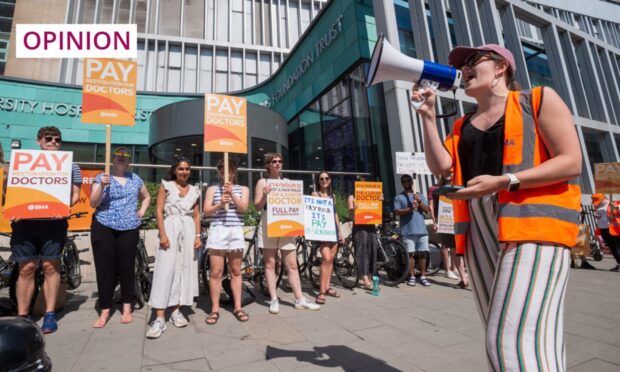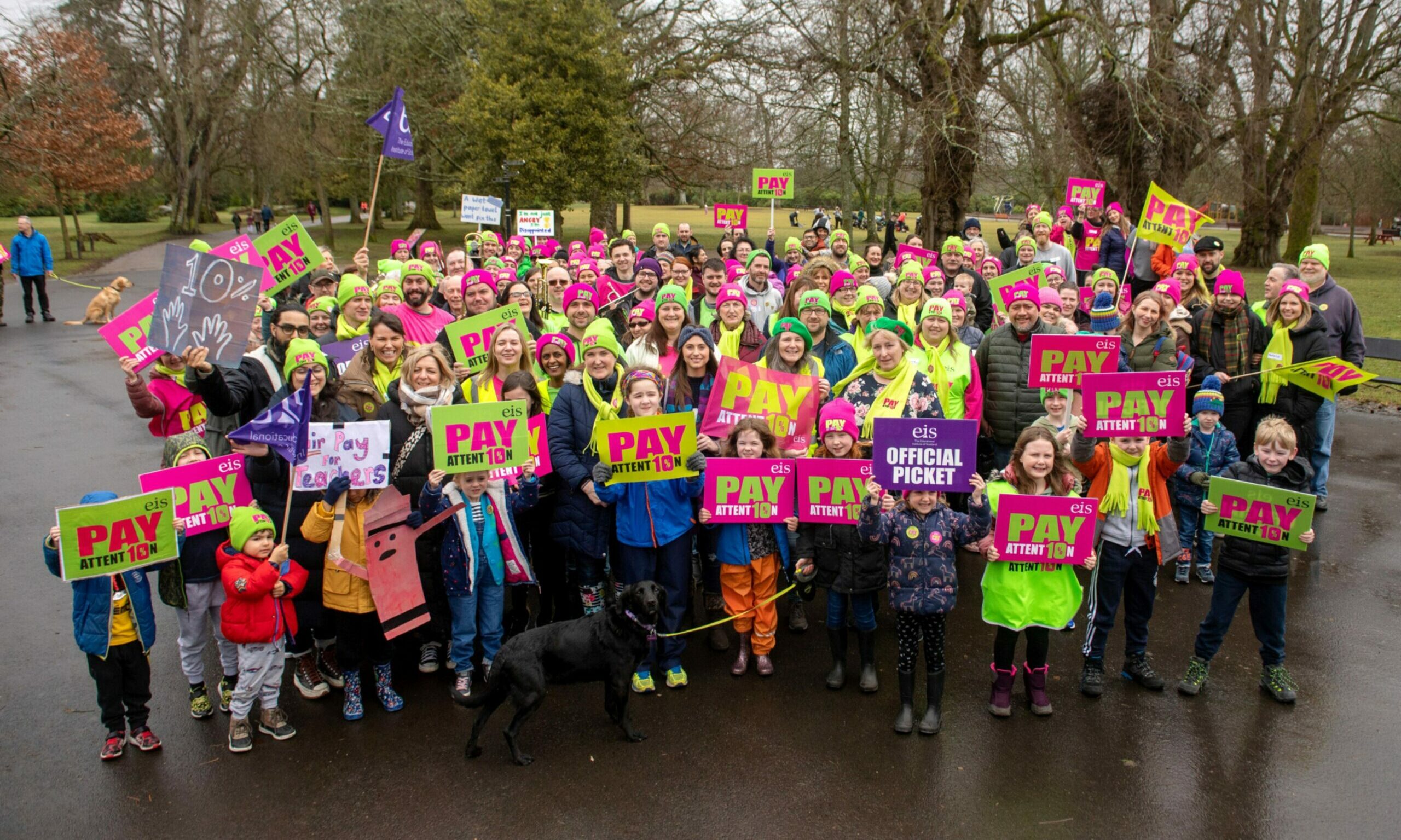I don’t have fond memories of the one industrial strike I was involved with personally.
Not those which have held the UK to ransom over the past year, even though they’ve been bad enough. The sight of militant junior doctors turning industrial relations into a new type of casualty unit was the final straw for some.
It led to Westminster taking a sledgehammer to strikers, with extraordinary new laws to guarantee minimum staffing levels during strikes so that key services carry on at some acceptable level to protect the public.
People will either shout in horror or offer a hallelujah in response to this cataclysmic counter-attack against all-out industrial warfare.
I stood on a picket line when I was in my mid-20s, in solidarity with professional colleagues all over the country in a strike against private employers, rather than the public sector.
Workers’ strikes in the private sector seem to be virtually extinct these days, unless we count former public giants Royal Mail and BT. It’s public-sector unions calling the shots now.
I can’t quite recall exactly how long our strike lasted, but it must have been six to eight weeks, spanning Christmas.
I know it was this time of year because I remember hostilities were paused briefly one afternoon. Not quite like the two sides playing football in no man’s land in World War One, but an astounding sight, nonetheless.
A temporary truce, so that some of us could troop through the front door to collect nicely-wrapped Christmas gifts for our children.
Even though it was a national dispute, some local customs still prevailed. Our owners were intent on keeping alive their years-old tradition of gift-giving at Christmas for employees’ children. It was surreal to leave the picket line to go and get them.
A few probably resisted on principle, but we were under pressure: receiving benefits for our children – mine was a newborn of two months – and reduced pay.
Are there ever really any winners after bitter strikes?
We’ve been cushioned from the worst of the strike plague in Scotland recently, but not totally immune. It’s thanks, in part, to a workable relationship between the Scottish Government and medical unions, who agreed amicable pay deals with junior doctors and nurses.
In fairness, Scottish ministers appear to be going out of their way to avoid open warfare
with public services. They have also refused to enforce the new laws to maintain basic cover, preferring to keep the peace at all costs.
But these pay deals come with a hidden price for the public when a day of reckoning comes and books have to be balanced. Or not – as Scotland’s horrendous public debt just keeps rolling on.
It’s like the Scottish Government is living under a gaping hole in the roof, but hiding away in the basement to avoid looking at it.
The problem with public-service strikes is that they are designed to cause maximum disservice to ordinary people
That said, I can’t argue against a calmer, no-strike life that is better for all of us. So, credit where credit is due.
It’s ironic that Unison, one of the biggest unions driving through pay deals, is hammering another hole in the “roof” after warning Humza Yousaf and the Scottish Government against looming public sector cuts. The harsh truth seems to be that they can’t have one without the other; there is a price to pay somewhere down the line.
It makes you wonder if there are ever really any winners after bitter strikes. They can trigger seismic workplace changes, or new employment legislation to seal off perceived loopholes.
Sympathy strikes were outlawed previously, and tighter regulations introduced to control the process of balloting and calling strikes. Now it’s the Strikes Act.
Great responsibility must go hand in hand with wielding great power
The problem with public-service strikes is that they are designed to cause maximum disservice to ordinary people – including some of the most downtrodden people who don’t have a powerful union fighting their corner.
Junior doctors’ pay had been a running sore for as long as I can remember, and they have a powerful case.
We wearily expect rail unions to strike when it hurts travellers most, but junior doctors in England crossed a line when they chose the busiest time of year for patients. Now, they are delivering their intended coup de grâce with an unprecedented six-day strike.
Surely something really needs to be done to protect the public?
I heard a TUC boss bemoaning “intimidation and bullying” around strikes the other day. For a few moments, I thought he meant their effect on the public. But he actually meant the Strikes Act’s curbs on all-out strikes by union members.
I reckon what he was really worried about was that bringing the country only halfway to its knees was not as good as completely to its knees.
But great responsibility must go hand in hand with wielding great power. The Strikes Act might fulfil that aim in some places, but it’s fallen at the first hurdle in Scotland.
David Knight is the long-serving former deputy editor of The Press and Journal



Conversation